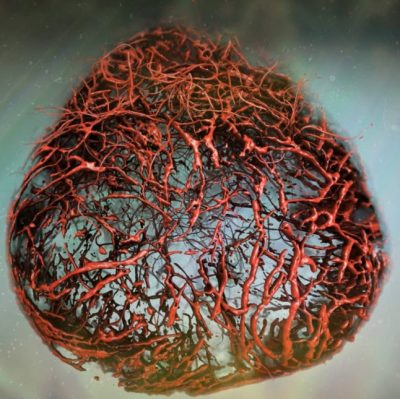LSI Director Josef Penninger and British colleagues have been awarded a UK-Canada Diabetes Research Team Grant to investigate the potential to reverse vascular changes caused by high blood sugar in artificial human blood vessels.
Diabetes affects nearly 3 million Canadians and 8.8% of the global population. The cost of treating Canadian diabetes patients diagnosed between 2012-22 is estimated at $15.4 billion, while in the UK, 10% of the National Health Service’s budget is spent on treating diabetes and associated complications, including kidney disease, blindness, heart attacks, stroke and amputation of lower limbs.
These complications are often caused by changes in blood vessels, thus strategies that protect or repair vascular tissue are considered important avenues for treatment. The joint funding will bring nearly $150,000 a year for three years to an international team focused on the challenges of moving several protective molecules identified in cultured cells and mouse models into a human environment.
Dr. Penninger’s group recently developed a novel method to create human blood vessels from stem cells in the laboratory. When exposed to diabetic conditions, these artificial blood vessels, or organoids, show the same changes and features seen in the blood vessels of people with diabetes.
Using these vascular organoids, the scientists can examine promising findings before conducting clinical trials with human participants.
Dr. Penninger will work with Dr. David Long at Great Ormond Street Hospital Institute of Child Health, University College London, Professor Luigi Gnudi from Kings College London, and Dr. Karen L. Price of the Institute of Child Health at University College London to assess two previously identified molecules, angiopoietin-2 and apelin, to reverse changes caused by high blood sugar in human blood vessel organoids.
They will also examine why some diabetic patients do not develop blood vessel-related complications. Their findings will ultimately support the discovery and development of new treatments for vascular complications in diabetes.
“Bridging the gap to translation by understanding and preventing diabetic vascular complications using human organoid culture” was one of six projects funded under a competition sponsored by the CIHR’s Institute of Nutrition, Metabolism and Diabetes (INMD), Institute of Infection and Immunity (III) and the Institute of Musculoskeletal Health and Arthritis (IMHA), in partnership with the UK Medical Research Council (MRC) and the UK Economic and Social Research Council (ESRC).
Information about the UK-Canada Diabetes Partnership Research Team Grants
Image: Tibor Kulcsar, IMBA
